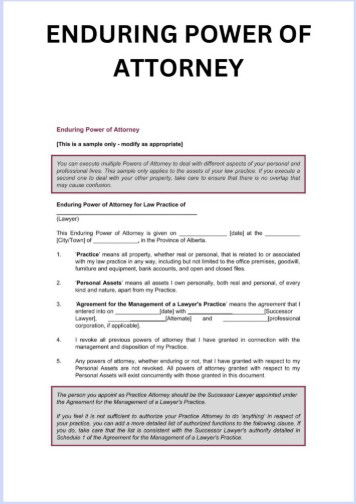What is an Enduring Power of Attorney (EPA) and are they still valid?

Author: Chris Watts, MSWW, CeMAP — Will Writer, Fern Wills & LPAs
Last verified: 17 August 2025 (England & Wales)
Quick-read summary
Enduring Powers of Attorney (EPAs) were the old system for giving someone legal authority to manage your property and finances. They were replaced in October 2007 by Lasting Powers of Attorney (LPAs).However:
- EPAs made before 1 October 2007 are still legally valid.
- They only cover property and financial matters (not health and welfare).
- If the person who made the EPA loses capacity, it usually has to be registered with the Office of the Public Guardian before it can be used.
In practice, very few people now have EPAs. But if one exists, it is still important to know how it works and when to register it.
Practical checklist
- If you created an EPA before October 2007, it can still be used.
- EPAs only deal with money and property, not health or welfare.
- Attorneys must register the EPA with the Office of the Public Guardian once the donor loses capacity.
- No new EPAs can be made — only LPAs are available today.
- If you find an old EPA, it is worth reviewing alongside your current estate planning to ensure it still meets your needs.
What to consider
- Validity: An EPA signed before 1 October 2007 is still valid but limited to financial decisions.
- No health powers: If you want attorneys to make health and care decisions, you’ll need a Health & Welfare LPA.
- When to register: EPAs must be registered with the OPG when the donor becomes, or is becoming, mentally incapable of managing their affairs.
- Practicality: Some banks and institutions may be less familiar with EPAs today, so attorneys may face delays or requests for extra checks.
- Reviewing your documents: If you still have an EPA, it may be a good time to consider replacing it with a modern LPA that reflects today’s needs.
How this works in real life
We recently helped a client — we’ll call him Mr T. He had set up an EPA in the early 2000s. When his health declined, his family needed to register the EPA with the Office of the Public Guardian.
Although the document was still valid, the family found the process confusing, and some organisations were unfamiliar with EPAs. We guided them through registration and explained when it might be sensible to put LPAs in place as well.By the end, they had both the registered EPA available for immediate use and new LPAs to future-proof their planning.
Frequently asked questions ❓
Are Enduring Powers of Attorney still valid?
Yes. If signed before 1 October 2007, an EPA is still legally valid, but it only covers property and finances.
Can I make a new EPA today?
No. Since October 2007, only Lasting Powers of Attorney (LPAs) can be made.
Does an EPA need to be registered?
Yes, but only when the donor is losing or has lost mental capacity. Until then, it can usually be used without registration.
What’s the difference between an EPA and an LPA?
- EPA = property and finances only, old system, made before Oct 2007.
- LPA = modern system, can cover property & finance or health & welfare, available since Oct 2007.
Should I replace my EPA with an LPA?
It depends. If your EPA still suits your needs, you can keep it. But many people now create LPAs (especially for health & welfare decisions) for more complete protection.
Optional technical notes (for those who want the detail…) 📑
- Legal change: Enduring Powers of Attorney Act 1985 introduced EPAs. They were abolished by the Mental Capacity Act 2005, which created LPAs.
- Registration: EPA registration requirements are set out under Schedule 4 of the Mental Capacity Act 2005. Attorneys must apply to the OPG if they believe the donor is, or is becoming, mentally incapable.
- Jurisdiction: EPAs remain recognised in England and Wales. Scotland and Northern Ireland have different arrangements.
- Statistics: According to OPG figures, the vast majority of registrations today are LPAs. EPA registrations are now very low, reflecting their age.
Sources & further reading:


